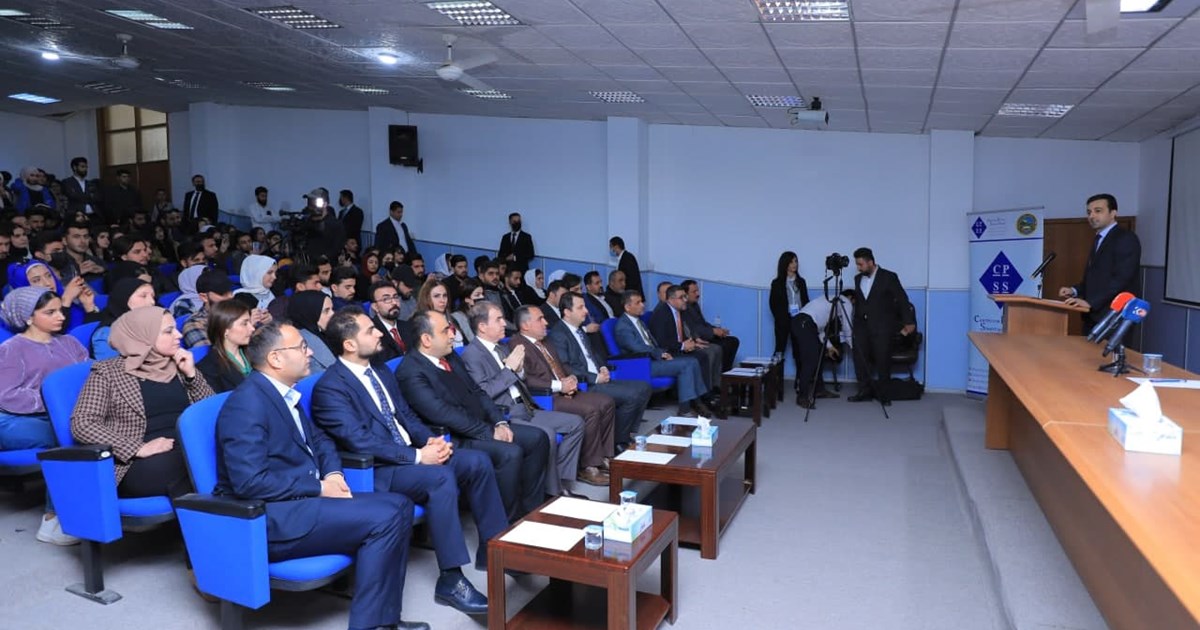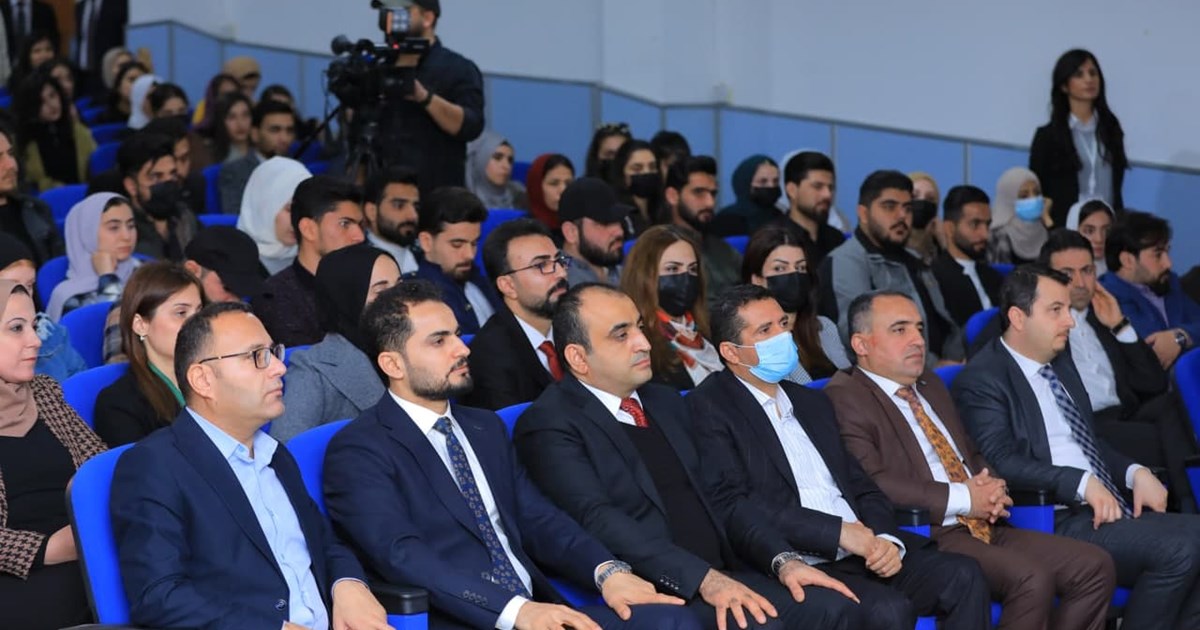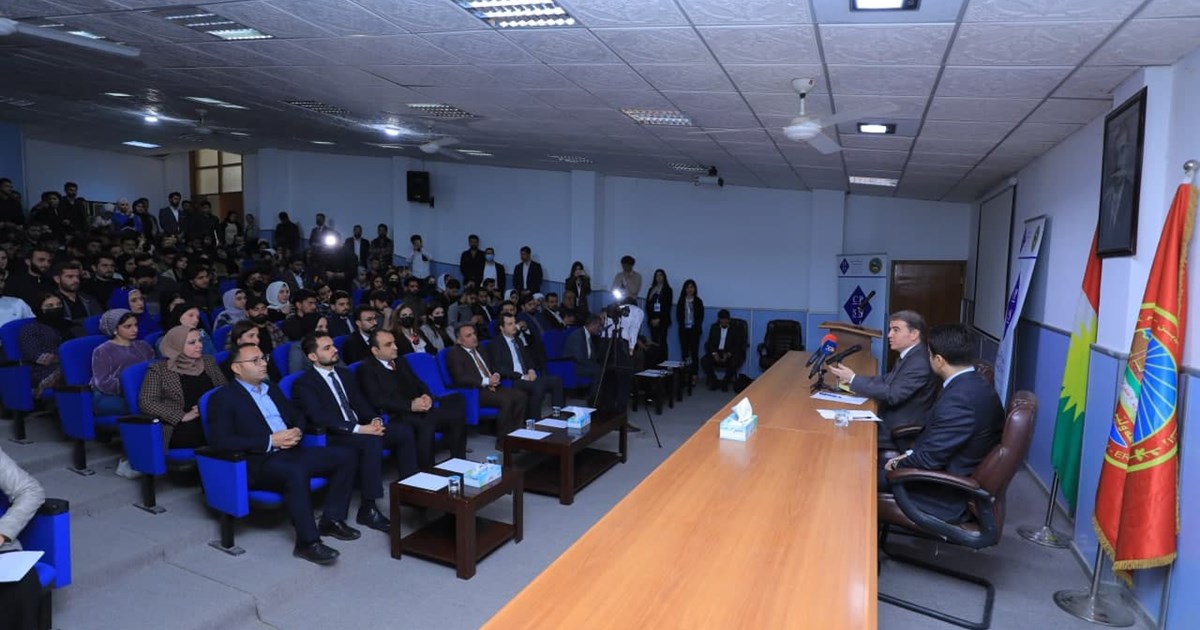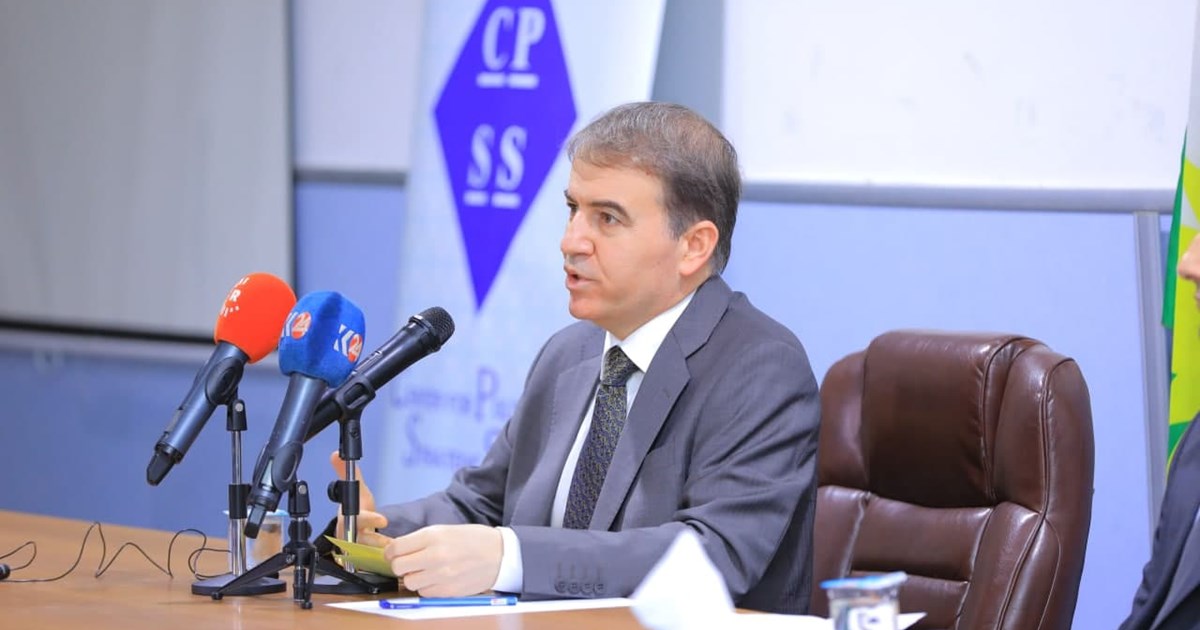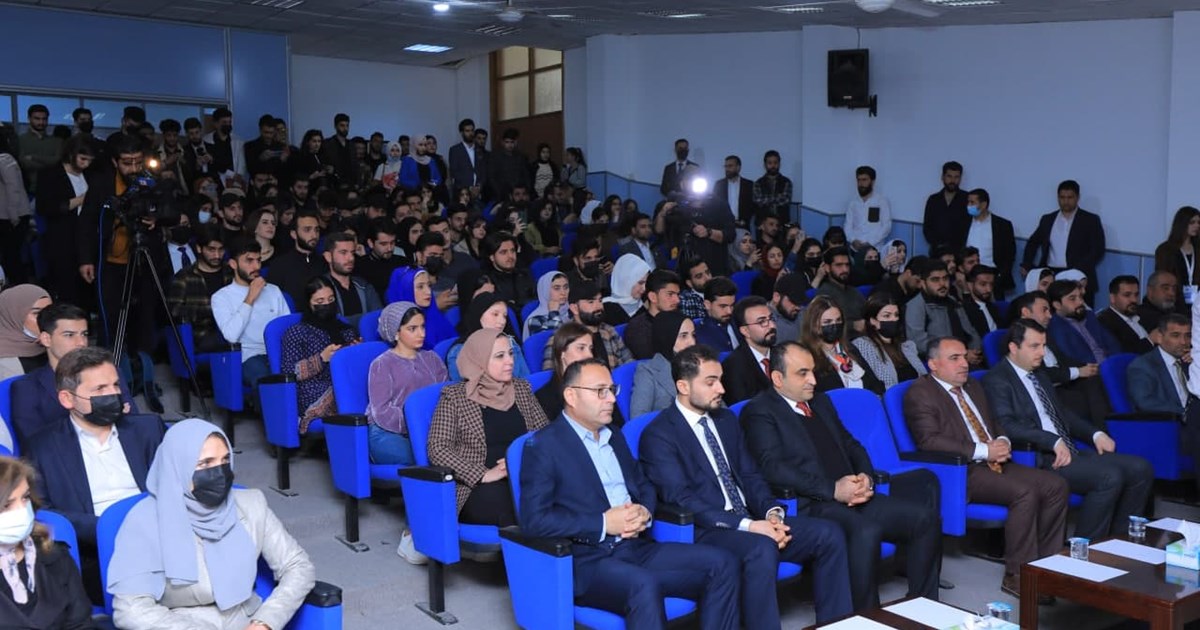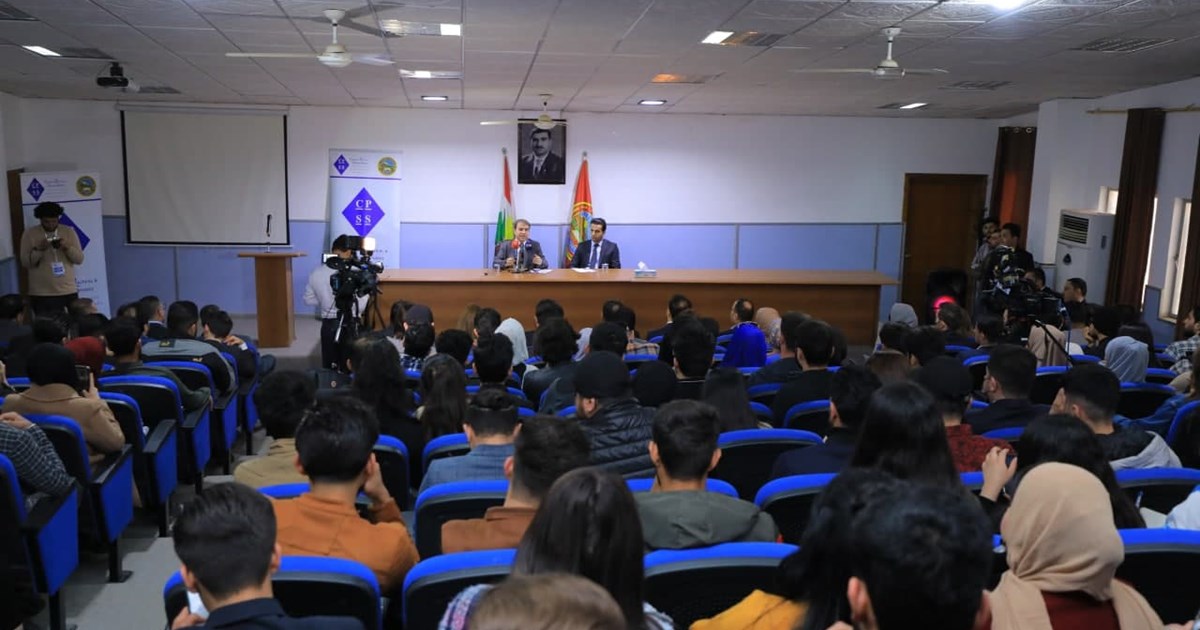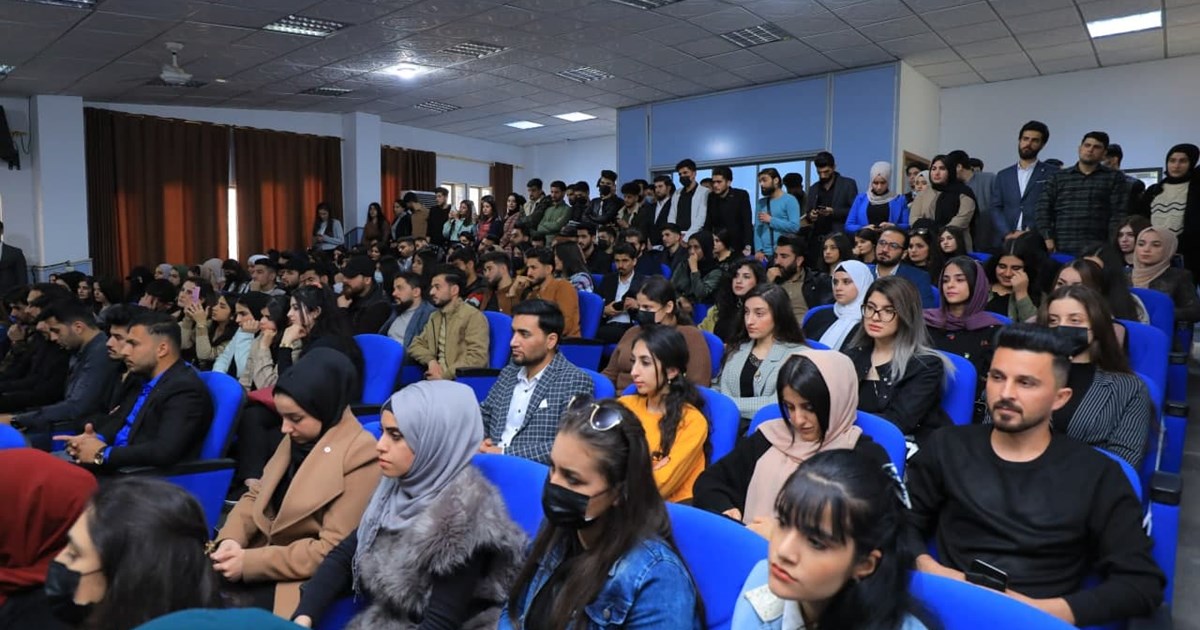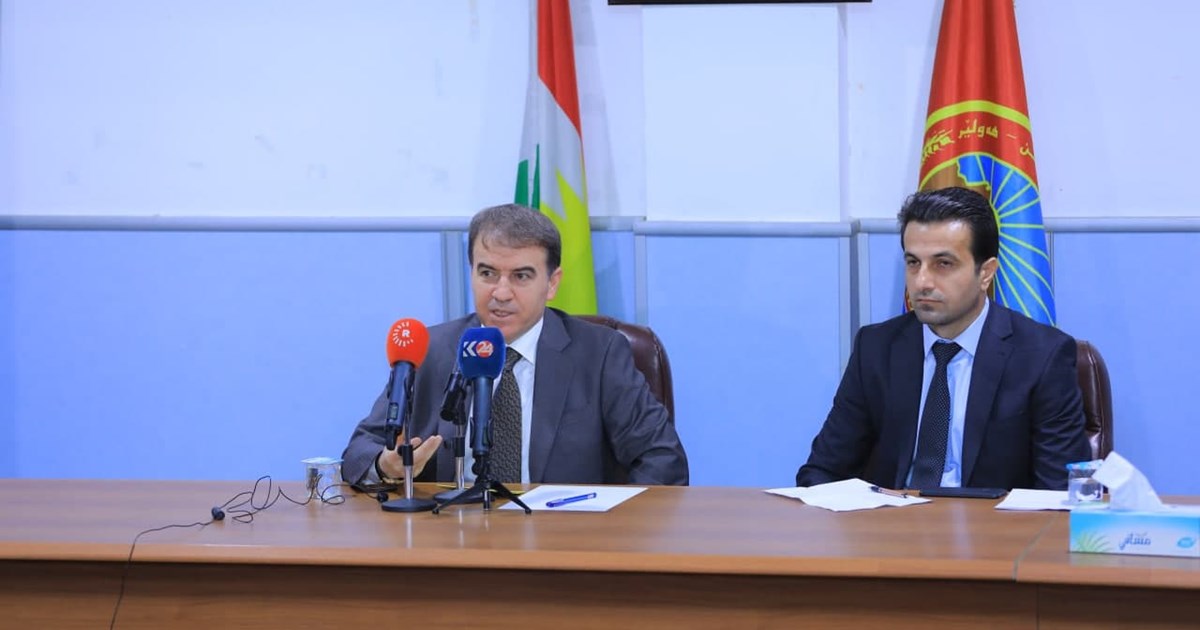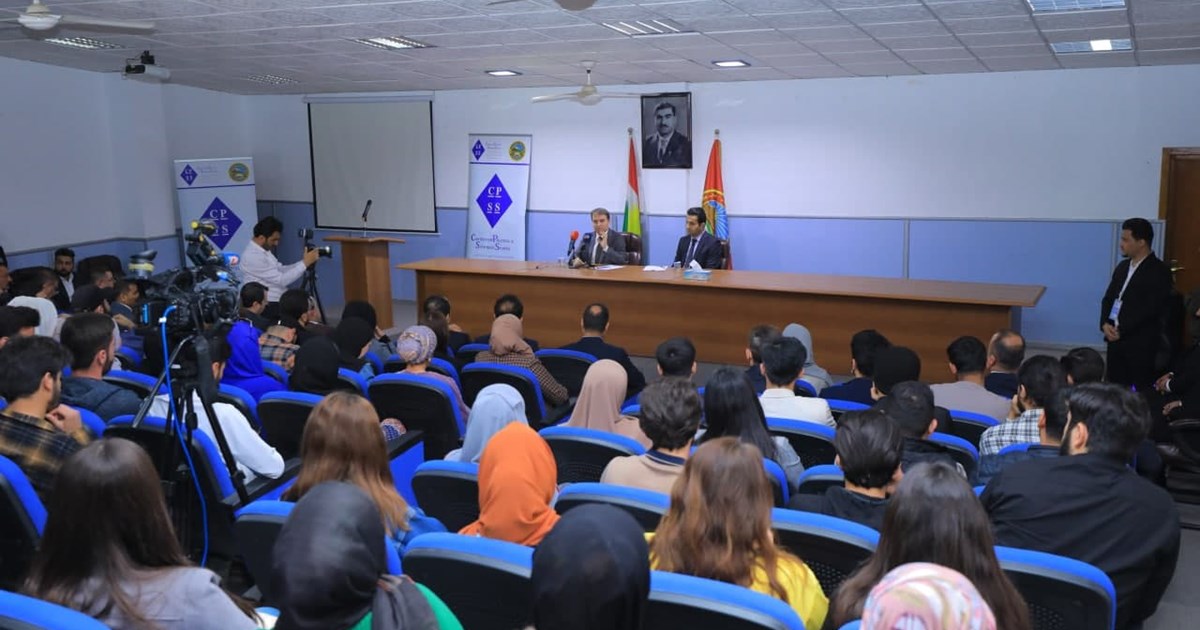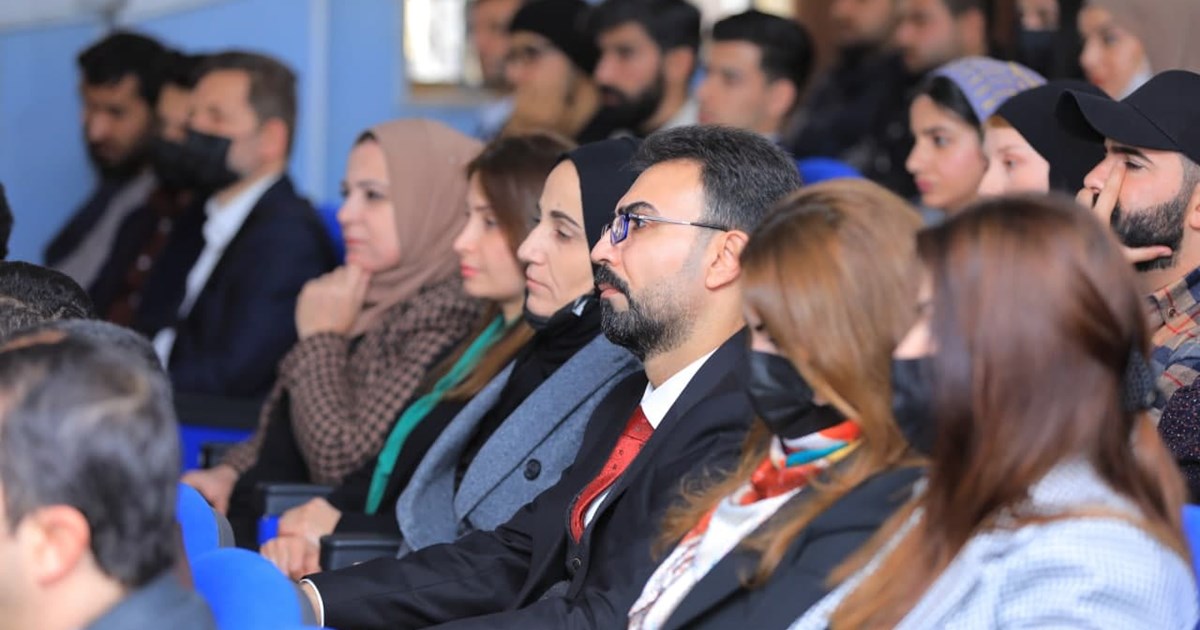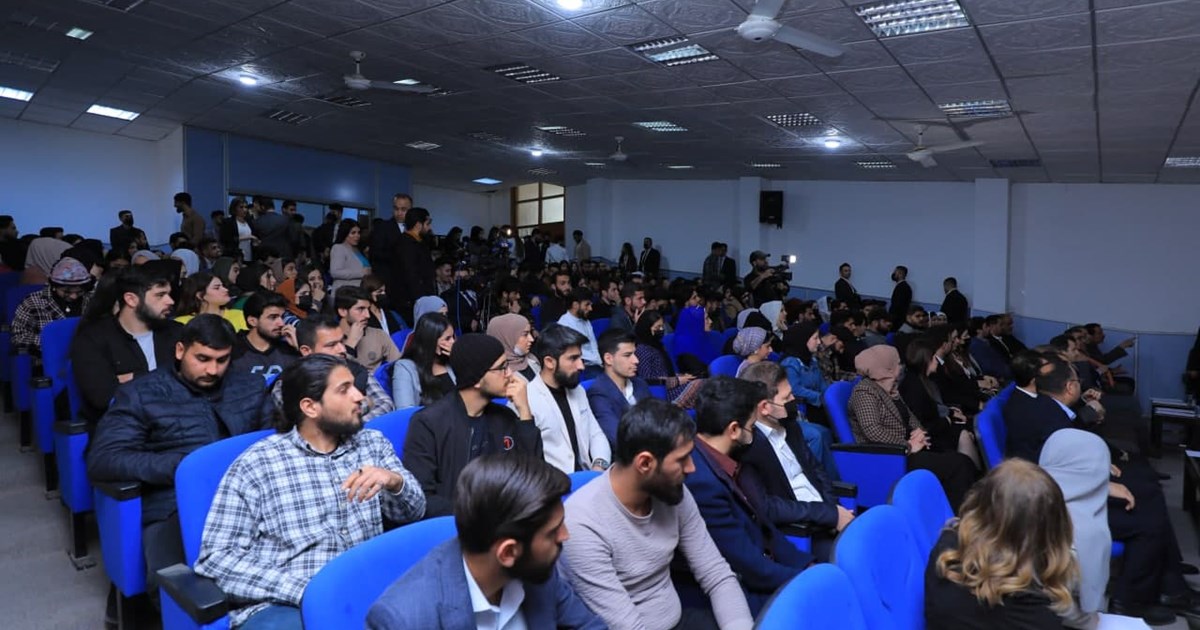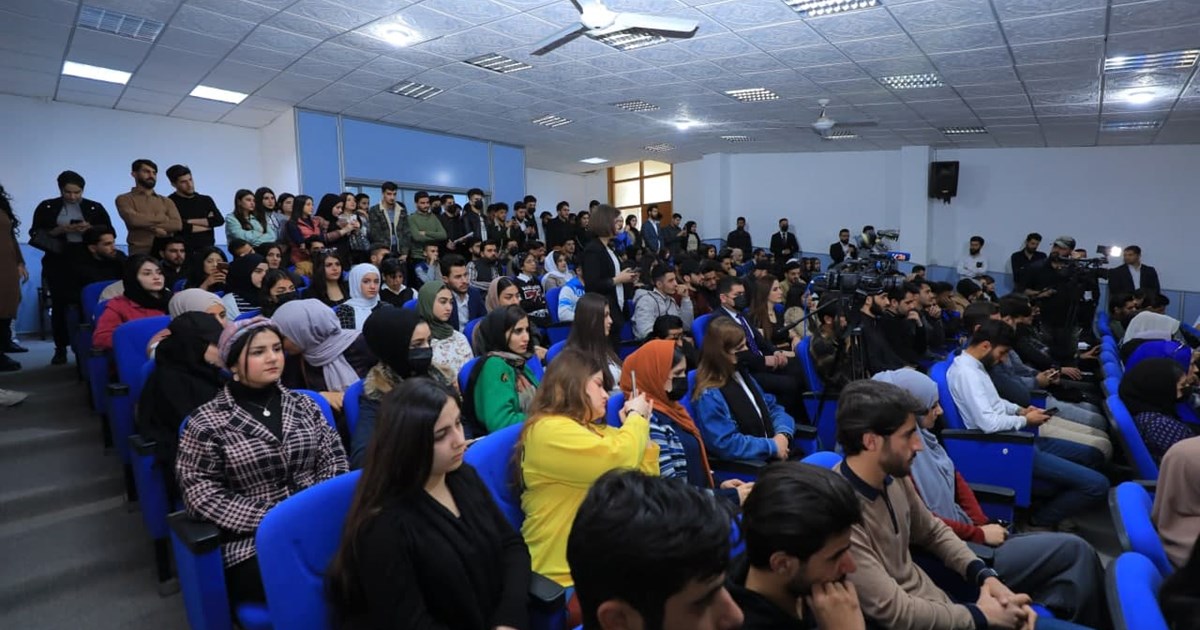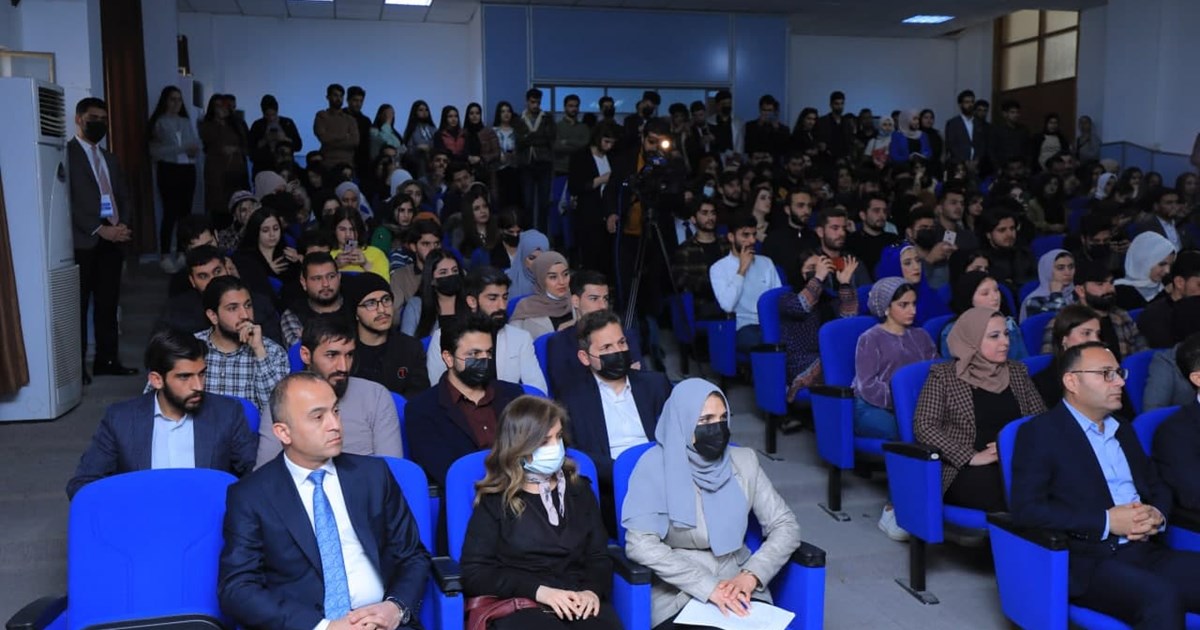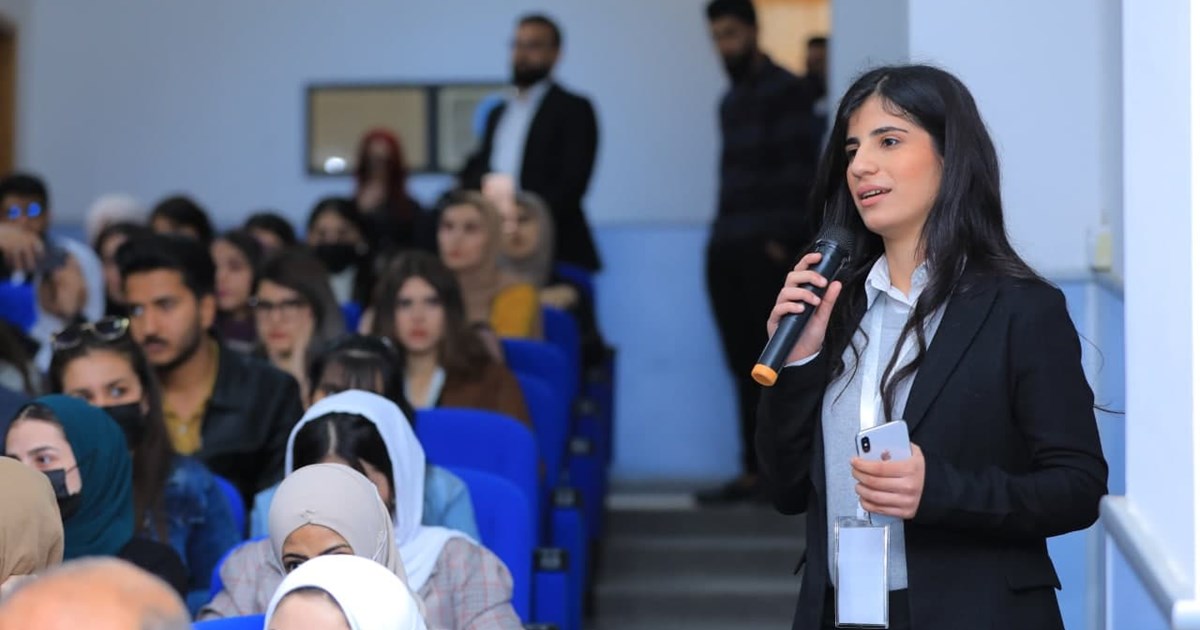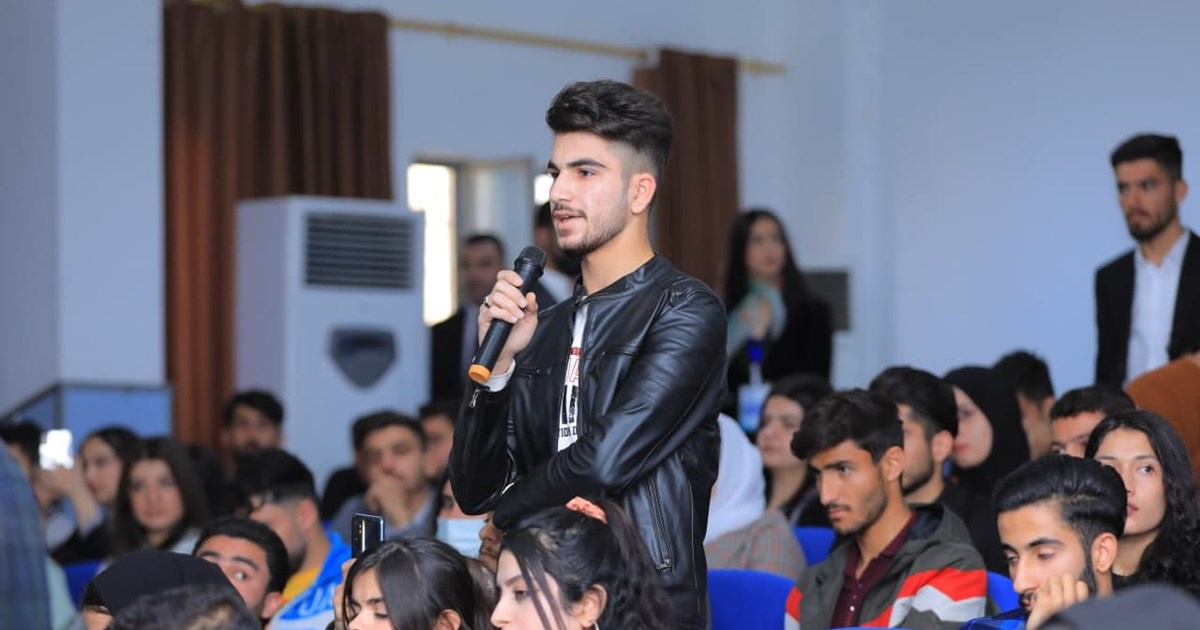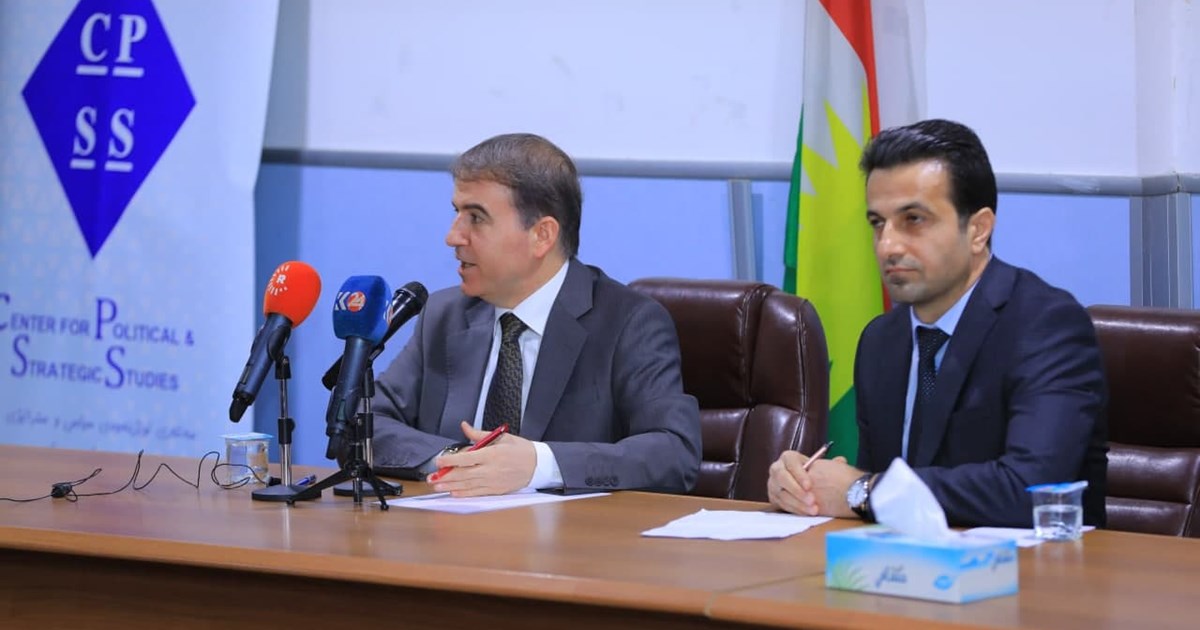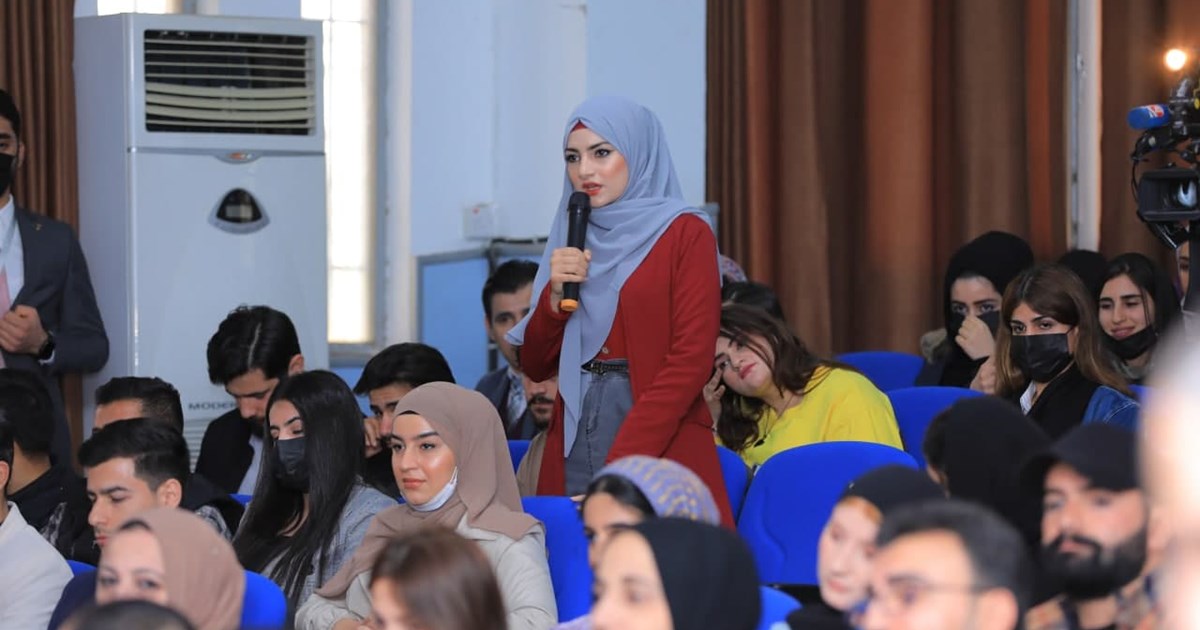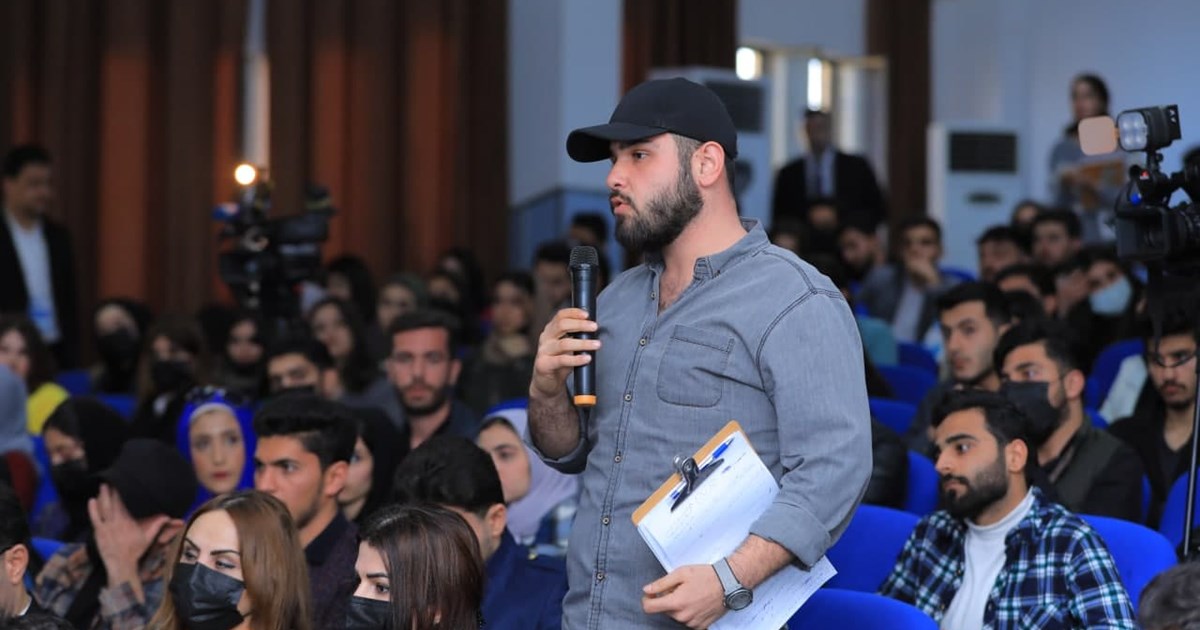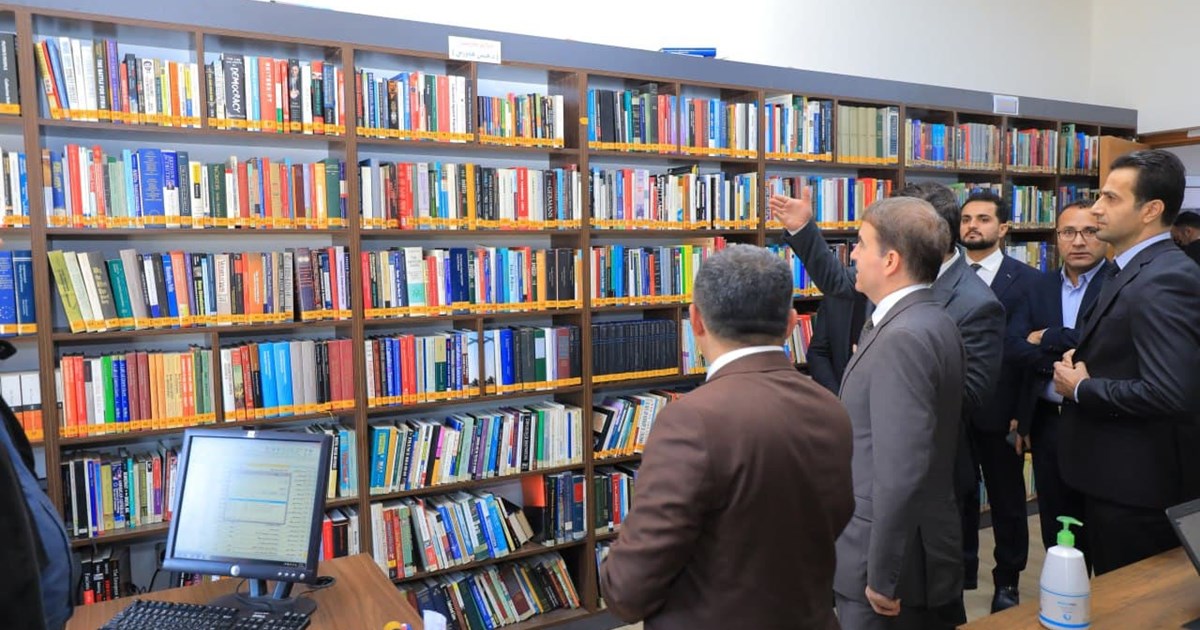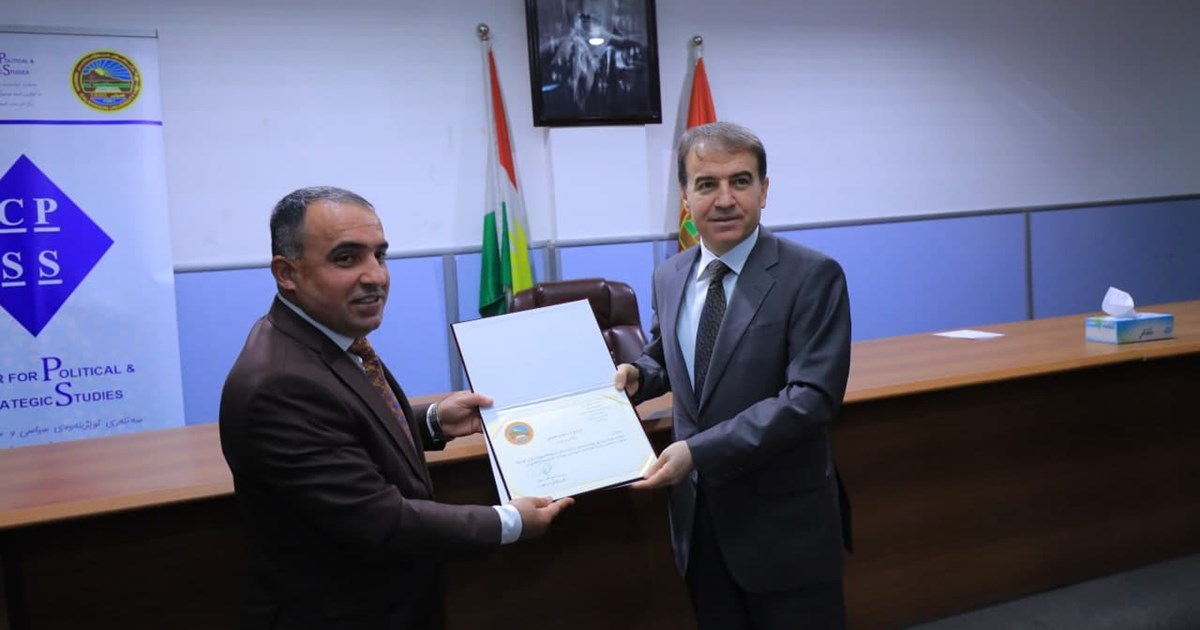Deputy Speaker Dr. Hemin Hawrami gives seminar to Salahaddin University political science students
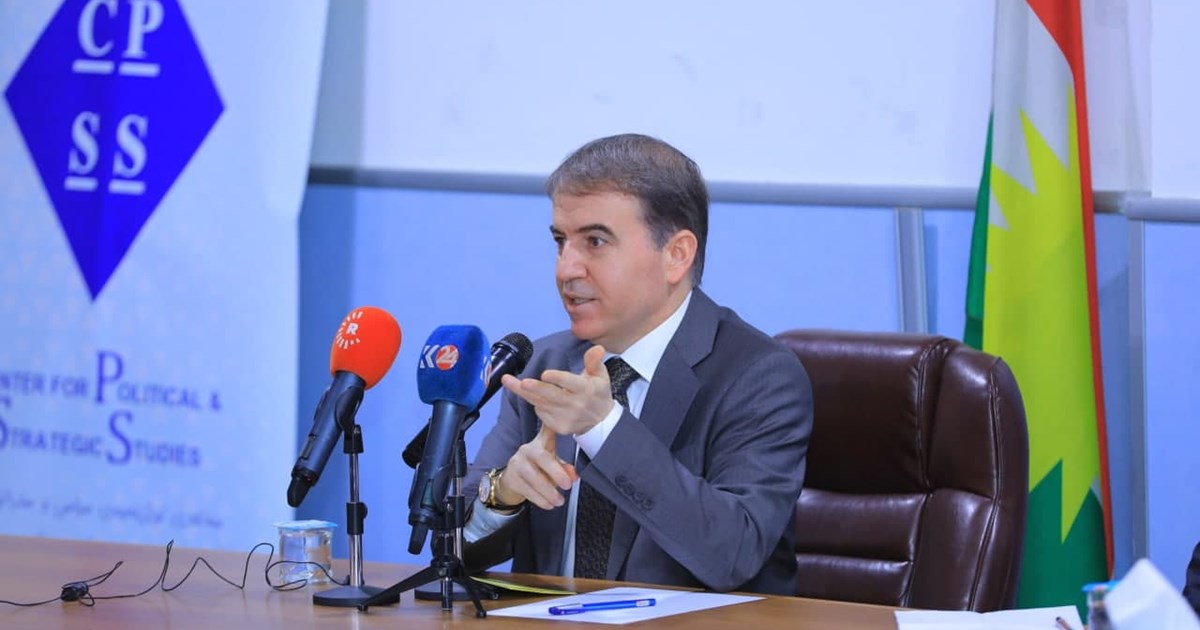
Kurdistan Parliament Deputy Speaker Dr. Hemin Hawrami on 15 February 2022 gave a seminar to students and teachers at Salahaddin University about the current fifth term of Parliament, the democratic and parliamentary process and preparations for the next parliament elections.
Speaking to students, the dean of the college Dr. Asud Qadir Ahmad and other academics at Salahaddin University’s Centre for Political and Strategic Research in the College of Political Science, Dr. Hawrami gave an overview of the Kurdistan Parliament’s work and the criteria by which Parliament’s accomplishments should be evaluated.
Deputy Speaker Hawrami said, "According to the usual criteria used worldwide to assess parliamentary work, there are four areas in which Parliament’s performance should be assessed. It shouldn’t be evaluated randomly without a proper basis. There should be discussion about using a group of measurable criteria to assess the work, activities, knowledge and expertise of a country’s parliamentary institution. First, the law-making process in terms of the type, number and level of legislation…. meaning measuring the strength and capacity of the law-making process. Second, the monitoring and oversight of the executive authority…third, Parliament's ability to discuss and pass the budget."
"Now there is another area that can be measured, which is promoting Parliament, which known as parliamentary diplomacy. So we have these four standards to evaluate Parliament as an important legislative institution.”
Deputy Speaker Hawrami said that if these four criteria are used to assess each of the five terms of the Kurdistan Parliament, the results may differ for each of the terms. "A term could have been more active in terms of the legislative process, not very active in terms of oversight of the executive, it may have been active in terms of the law-making and budget processes but did not carry out enough oversight of the Government, or a term was active in all three areas, but in terms of diplomacy, the Parliament did was not able to carry it out, so we cannot apply these four measurements in the same way to each of the four terms of the Kurdistan Parliament."
Dr. Hawrami said, "Since 1992, about 396 laws have been passed, and about 138 legislative decisions have been passed, meaning that the Kurdistan Parliament has been active in law-making."
He added, "More than 190 of these laws were passed in the first term of the Kurdistan Parliament because this was the beginning of the establishment of the Kurdistan Region and we needed to pass laws to establish the Kurdistan Regional Government. In the second term some of these laws needed amendments because 13 years had passed since the first term and the Government of Iraq had changed. After 2003, the Iraqi Constitution was passed, and some laws were passed in accordance with the new Iraqi Constitution, so in the second term the legislative process and law-making was very active.
The Deputy Speaker also spoke about the political and democratic process and each term of Parliament’s characteristics. He said that the current fifth term of Parliament has been the most active in terms of oversight of Government and parliament diplomacy. According to Parliament's internal rules of procedure, there are processes for monitoring the government, such as sending questions, inviting ministers to answer questions or meet with the standing committees, creating reports and carrying out investigations.
Dr. Hawrami explained the preparations for the election for the sixth term of the Kurdistan Parliament, the necessary legal procedures, and Kurdistan Parliament’s discussions with the political parties on the issue and the challenges.
Dr. Hawrami said that the election must be held on time, as stipulated in the election law.
After a Q&A with the students, Deputy Speaker Hawrami gifted some books in English to the college’s library.
